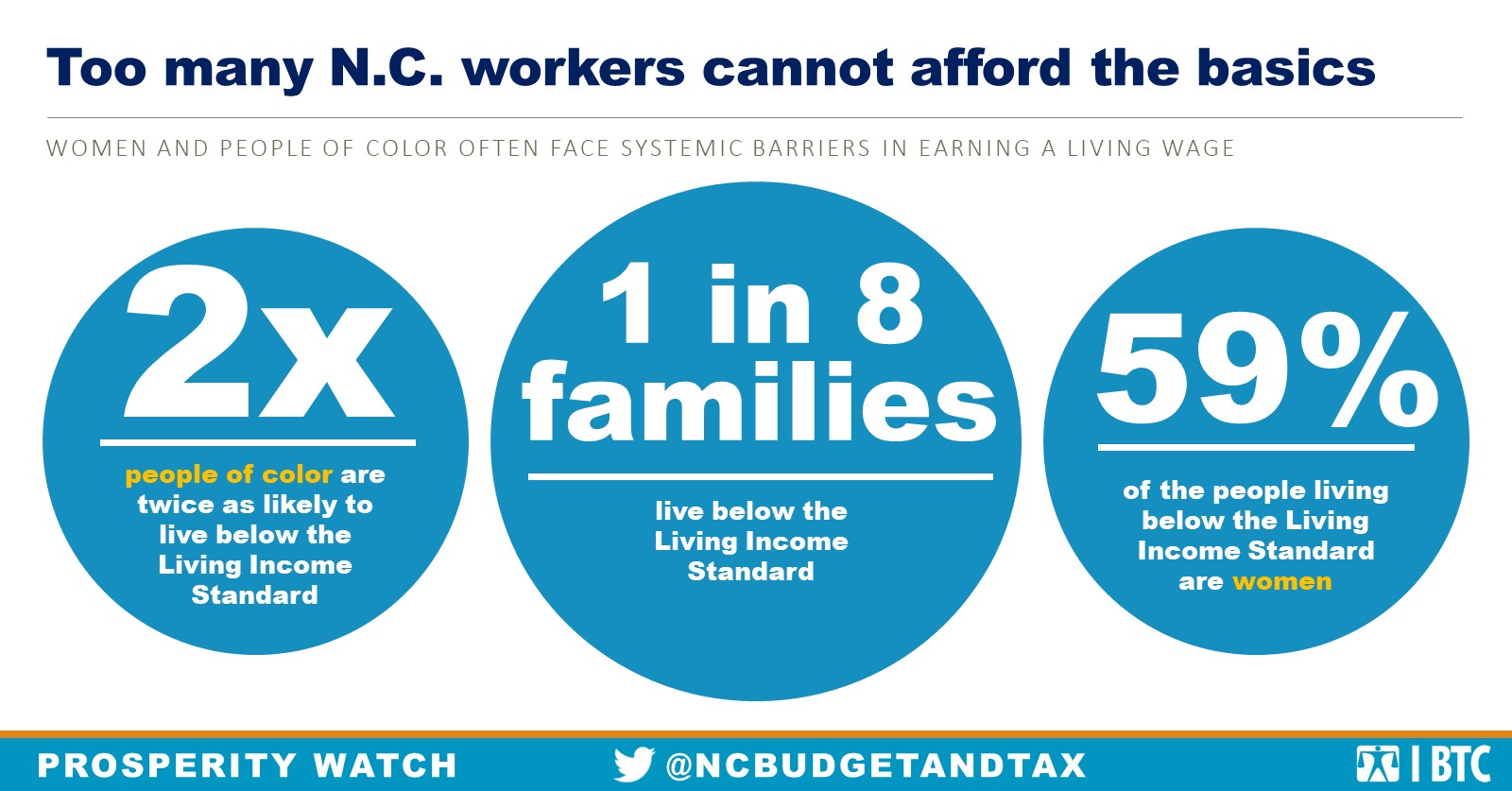The official measure, the Federal Poverty Level, fails to capture what families actually need in order to make ends meet. The NC Budget & Tax Center’s 2019 Living Income Standard gives us a better understanding of the expenses North Carolina families incur. In order for a family of four to afford rent, transportation, child care, food, health care, and other expenses, they will need to earn nearly $53,000 each year. Across the state, more than 1 in 8 families live below the Living Income Standard. Further analysis helps us to understand not just how many North Carolinians live below the Living Income Standard, but who.

Women, people of color, and families with children are more likely to earn below the Living Income Standard than their male, white, older counterparts. While women account for 51 percent of the total North Carolina population, they make up 59 percent of people living below the LIS, and families with children make up nearly 42 percent of all individuals below the LIS. Black and Latinx North Carolinians, while only accounting for 21 and 9 percent of the state population, represent 26 and 22 percent of people below the LIS, respectively. Additionally, people without college degrees as well as non-citizens are over-represented in terms of earning below the LIS.
There are a wide range of factors that contribute to disparities in which families are not earning enough to make ends meet. Currently, even families where both parents work full-time for minimum wage earn just over half of what they actually need to afford the basics. Increasing the minimum wage to $15 by 2024 would benefit 1.6 million workers in North Carolina. Additionally, while the overall unemployment rate has dropped, 49 out of 100 counties still have fewer jobs today than they had prior to the recession. Twenty-three of those counties continue to lose jobs each year.
Understanding that racism, sexism, and other oppressive structures contribute to earning disparities is critical in investigating what is causing the disparities and formulating policies that can begin to address it.
 Justice Circle
Justice Circle